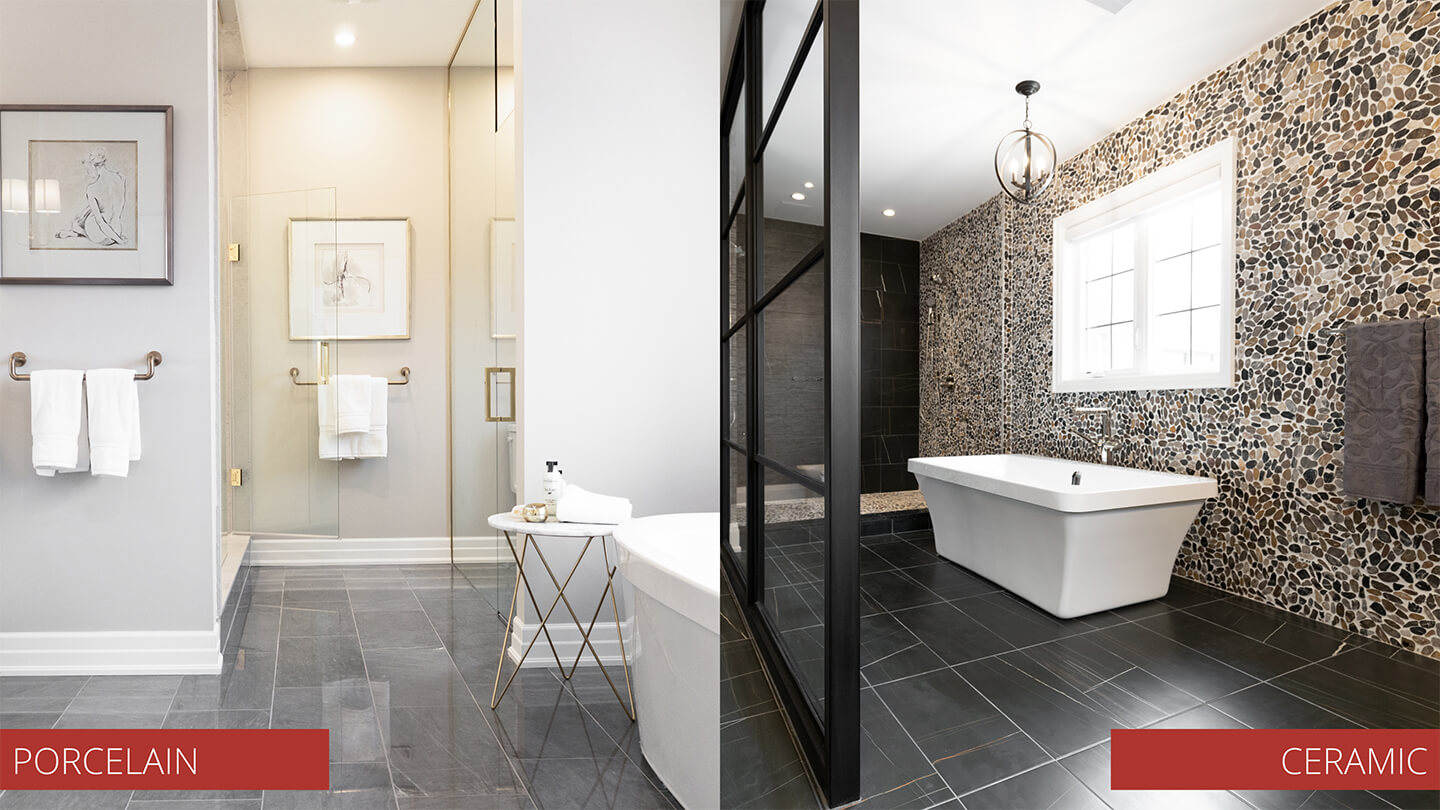Porcelain vs. Ceramic Tiles: Which Is Right For You?

Both ceramic and porcelain tiles are great versatile surfaces, but they can often be difficult to distinguish if you aren’t a tile expert.
Porcelain and ceramic tiles are both clay-based and kiln-fired. Porcelain tile comes from fine kaolin clay which has a higher density and is fired at a higher temperature for a longer period. Ceramic tile is composed of a coarse clay making it less dense, requiring a shorter firing time.
Here’s a summary of the key differences.
- Appearance: One recent innovation that has pushed porcelain tiles above and beyond ceramics tiles is the ability to manufacture them to resemble different materials. Ceramic tiles come in solid colors or patterns. However, porcelain tiles can now be made to effectively mimic natural stone like granite and marble, or even wood grains.
- Water-resistance: Porcelain is harder and therefore less porous than ceramic, which makes it impervious to water. Porcelain also does a better job preserving wet areas like showers and sinks.
- Heat-resistance: Both porcelain and ceramic tiles have an excellent resistance to heat making it a good option for countertop surfaces. However, if you are looking for an outdoor tile, porcelain is slightly better since it is also water resistant.
- Installation: Ceramics are typically easier to install, so if you are attempting your own tiling, ceramics might be a better option. Professionals, however, have the tools and experience to make clean cuts on porcelain.
- Durability: Porcelain is more durable due to its composition. It is fired in the kiln at a higher temperature, making the tile heavier and harder than ceramic. And while glazed ceramic tiles are also durable, porcelain typically lasts longer, especially in high-traffic areas of your home.
- Maintenance: Both ceramic and porcelain tiles are relatively easy to clean, it just requires a routine damp-mopping. If a porcelain tile were to chip, it is the same colour throughout, making the damage less visible. Ceramic tile chips may unveil a different colour beneath the top glaze making the damage more noticeable.
- Lifespan: Porcelain tiles are denser and harder thus making it less prone to wear and tear overtime. However, this attribute makes porcelain tile less flexible, which makes it more susceptible to cracking under structural shifting. According to The Spruce a ceramic tile floor can last from 75 to 100 years maintained properly and regularly. Although a ceramic tile is softer in nature, it tends to resist cracking better than a porcelain tile.
- Cost: Ceramic tiles are generally cheaper than porcelain tiles, however some high-quality ceramics can be priced the same as a porcelain tile. This can vary depending on your desired look and brand.
Both ceramic and porcelain tiles are suitable for your flooring, wall, countertop, and backsplash needs, but your choice will affect your budget, installation, and maintenance. At Trini Tile we pride ourselves on our ability to help you find right tile for your home build or renovation.
